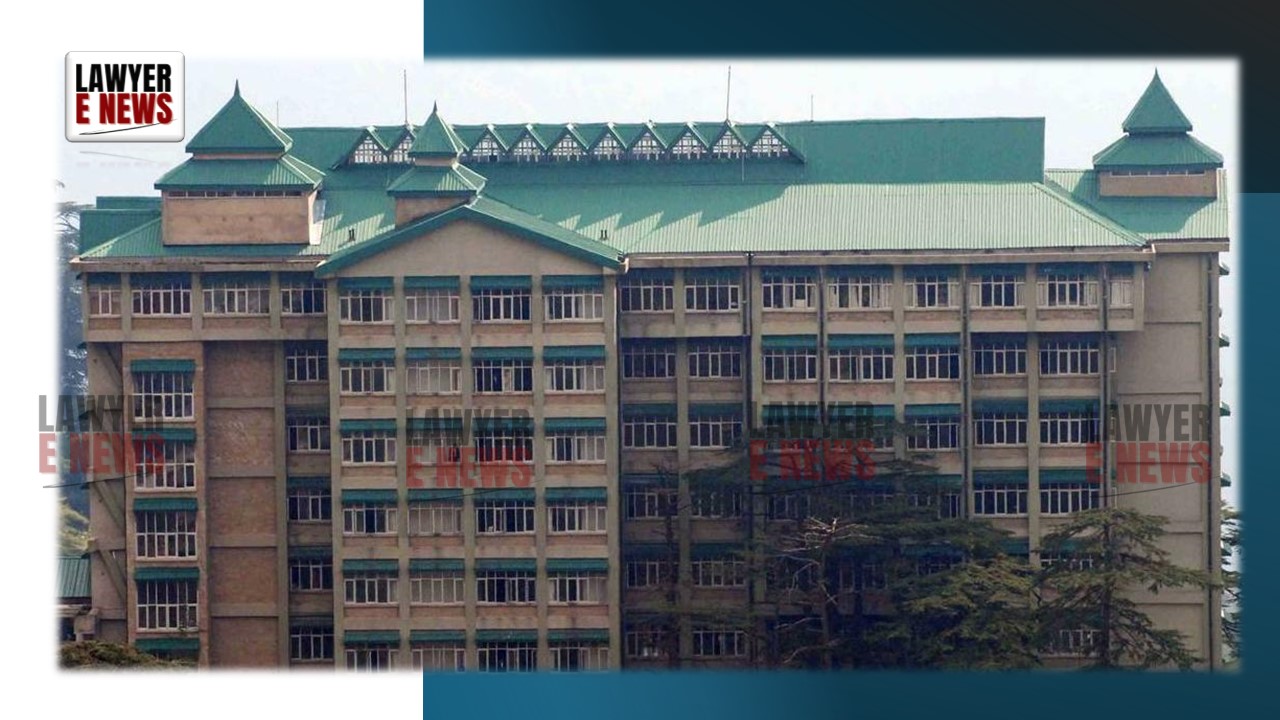-
by Admin
15 February 2026 2:36 AM



Justice Kainthla emphasizes importance of prima facie evidence and due process in rejecting petition to quash FIR in assault case.
The High Court of Himachal Pradesh has dismissed a petition seeking the quashing of an FIR in a case involving allegations of assault. The judgment, delivered by Justice Rakesh Kainthla, underscored the importance of prima facie evidence and the limitations of the court’s power under Section 482 of the Cr.P.C. The court emphasized that it cannot conduct a “mini-trial” at the stage of quashing proceedings.
The case originated from an incident on May 12, 2023, when the informant received a call while at his maternal uncle’s home. Following this, he was allegedly intercepted and assaulted by Naveen, Nitish, and other individuals. The informant and a pillion rider, Rahul, were allegedly beaten, leading to Rahul sustaining grievous injuries while the informant suffered simple injuries. FIR No. 61 of 2020 was subsequently registered at Police Station Palampur under Sections 341, 323, 325, 504 read with Section 34 of the IPC. The petitioners claimed the FIR was a counterblast to an FIR they had lodged against the informant’s party.
The court noted the medical examination reports that corroborated the injuries sustained by the informant and Rahul. These reports were instrumental in establishing the prima facie case against the petitioners. The court highlighted that medical evidence plays a crucial role in supporting allegations of assault.
The court acknowledged the conflicting narratives but reiterated that it is not within its purview to assess the truthfulness of the allegations at this stage. The trial court is the appropriate forum to examine the credibility of witness testimonies and the evidence collected.
Justice Kainthla referred to the principles laid down by the Supreme Court regarding the exercise of jurisdiction under Section 482 of the Cr.P.C., which allows for the quashing of FIRs. The court emphasized that such power should be exercised sparingly and only in clear cases where the allegations do not constitute any offence or are absurd and inherently improbable.
Justice Kainthla remarked, “The power to quash an FIR should be used sparingly and with abundant caution. The court cannot conduct a mini-trial or appreciate evidence at this stage. The allegations in the FIR, if taken at face value, disclose the commission of cognizable offences.”
The High Court’s decision to dismiss the petition underscores the judiciary’s commitment to ensuring due process and the proper evaluation of evidence in criminal proceedings. By affirming that the trial court is the appropriate forum for assessing the truthfulness of the allegations, the judgment reinforces the legal framework for handling assault cases. This ruling is expected to have significant implications for future cases involving similar disputes, emphasizing the importance of prima facie evidence and the limitations of quashing proceedings prematurely.
Date of Decision: July 26, 2024
